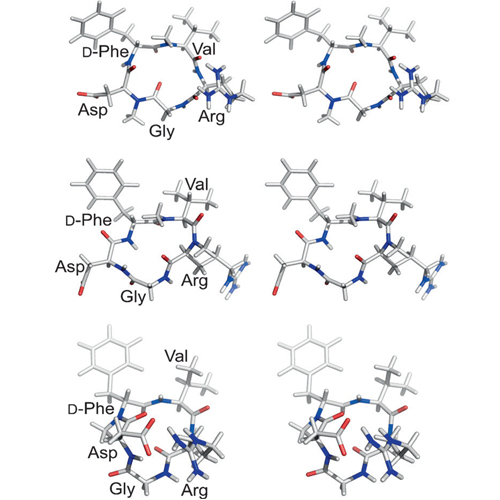Increasing αvβ3 Selectivity of the Anti-Angiogenic Drug Cilengitide by N-Methylation
26-Sep-2011
Angewandte Chemie, 2011, DOI: 10.1002/anie.201102971, Volume 50, Issue 40, pages 9496–9500 published on 26.09.2011
The drug Cilengitide, c(RGDf(NMe)V), is a cyclic RGD pentapeptide (R=arginine, D=aspartic acid, G=glycine) currently in clinical phase III for the treatment of brain tumors and in phase II for other cancer types.[1] The antitumoral properties of this peptide are based on its antagonistic activity for pro-angiogenic integrins, such as alpha-v-beta3, alpha-v-beta5, or alpha5 beta1. However, the specific roles of these integrin subtypes in angiogenesis and cancer are not yet clear and fully understood. In this work, we present di-N-methylated analogues of the stem peptide c(RGDfV) which retain an alpha-v-beta3- binding activity in the nanomolar range but have lost most of the activity for integrins alpha-vbeta5 and/or alpha5 beta1. Highly active and selective peptides for alpha-v-bets3 are important tools to study the specific role of this integrin in angiogenesis and cancer.











